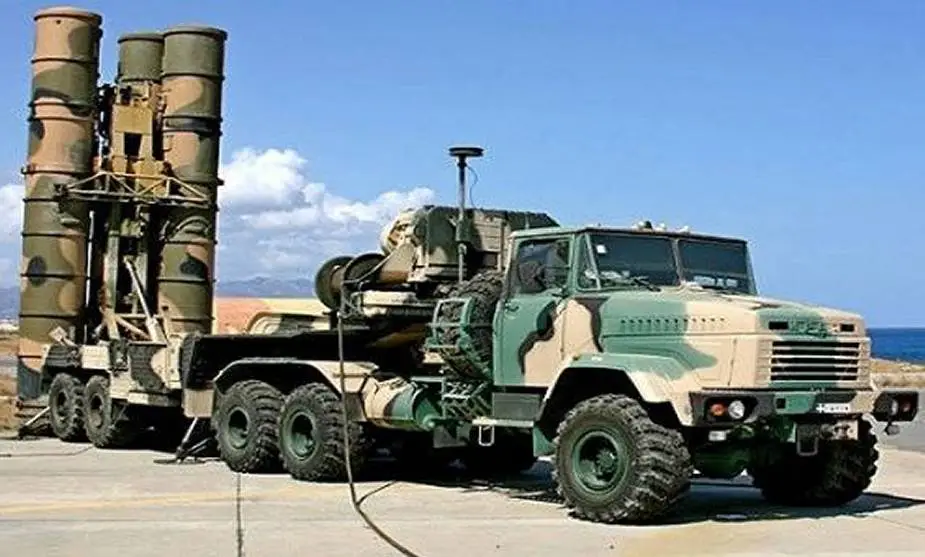US Secretary of State Anthony Blinken has proposed a potential exchange with Greece, offering to facilitate the transfer or sale of weaponry to Ukraine in return for Washington’s consideration of providing additional aid to Athens, amounting to a possible US$200 million.
In a letter addressed to Greek Prime Minister Kyriakos Mitsotakis, Blinken expressed interest in Greece’s defense capabilities that could be useful to Ukraine, contingent upon Ukraine’s interest and a subsequent assessment of the condition and approximate cost of the proposed assets.
“We continue to be interested in Greece’s defense potential to transfer or sell to Ukraine. If these opportunities are of interest to Ukraine and before the US government assesses their condition and approximate cost, we can explore opportunities for the potential allocation of additional foreign military financing in the amount of up to US$200 million for Greece,” Blinken said.
This proposal comes after the US State Department’s latest authorization of a prospective US$8.6 billion sale of F-35 fighter jets and associated equipment to Greece.
According to the Pentagon’s Security Cooperation Agency, this deal could involve the procurement of up to 40 fighters, 42 engines, guidance systems, spare parts, and other ancillary equipment, with assurances that such transactions would not undermine US military readiness or disrupt regional military balance.

In June 2022, Greece formally submitted a request to the United States seeking approval to acquire 20 Lockheed Martin-produced F-35 fighter jets.
The approval of this request represents a pivotal milestone within a complex, multi-stage process. Anticipating a positive outcome, Athens envisions the commencement of jet deliveries in 2027-2028.
In a notable parallel, the United States also extended a gesture of appreciation to Turkey for its role in facilitating Sweden’s accession to the North Atlantic Treaty Alliance by approving the sale of F-16 fighter aircraft and related equipment to Ankara.
This move marks a departure from prior reluctance by the American administration to authorize such transfers.
Despite possessing significant military assets, Greece has thus far exhibited reluctance to transfer or sell them to Ukraine.
This hesitancy is not primarily motivated by a desire to avoid deeper entanglement in the conflict. Instead, it stems from concerns for its security, particularly given the strained relations with neighboring Turkey.
Nonetheless, after the State Department submits the formal notification, Congress has a 15-day window to raise objections to the sale, following which the transaction is deemed final.
Even though some members of Congress expressed criticism of Turkey, US officials anticipate that Congress will not intervene to block either sale.
US Set To Transfer Outdated Weapons In Exchange For Weaponry For Ukraine?
In addition to the proposed sale of F-35 jets, the United States intends to provide Greece with two C-130H aircraft, ten engines for P-3 aircraft, 60 Bradley infantry fighting vehicles, and four LCS frigates from its excess defense articles.
While US Secretary of State Antony Blinken has stated that these defense articles will be furnished at no cost, Greek media speculate that this move could be aimed at pressuring the Greek government to transfer its Russian-made weapons to Ukraine.
Greek news outlet pronews.gr said that Greece would receive outdated infantry fighting vehicles and frigates from the United States in exchange for Russian weapons, which Washington is urging to be transferred to Ukraine.
The US$200 million promised compensation is deemed insufficient to procure even a single Western air defense battery equivalent in combat capabilities to the Russian Tor, Osa, and S-300 systems.
The Greek government has highlighted participation in the F-35 program and receiving a substantial aid package from the US as a significant enhancement of Greece’s defense capabilities.

However, questions arise about the true nature of this “large free military aid” amid suspicions of pressure to relinquish Russian air defense systems to Ukraine.
The portal also raises concerns about the financial burden of operating these weapons, particularly noting the substantial costs of maintaining and upgrading LCS frigates and Bradley infantry fighting vehicles.
Specifically, the portal pointed out that LCS frigates are equipped at the level of a patrol boat and would require significant investment to reach corvette status.
Similarly, adding Bradley infantry fighting vehicles to Greece’s arsenal necessitates new investments, with uncertainties regarding the expenses required for their modernization to the latest version.
The publication further highlights the potential financial implications of these acquisitions, citing examples such as Croatia’s expenditure of nearly US5 million for the modernization of each infantry fighting vehicle.
- Contact the author at ashishmichel(at)gmail.com
- Follow EurAsian Times on Google News




